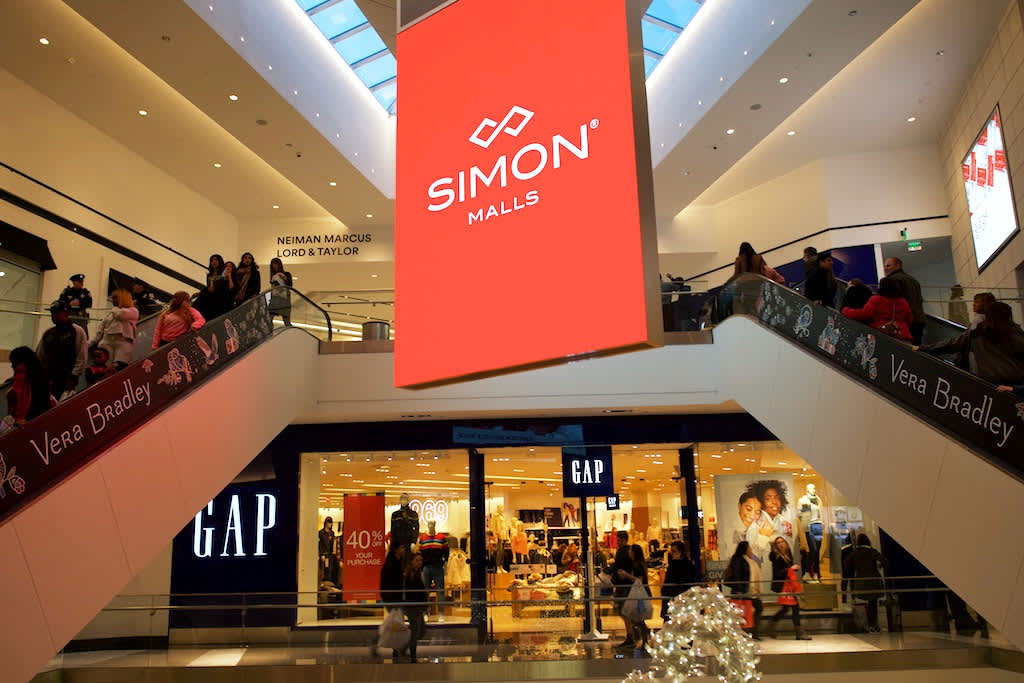
The biggest U.S. mall owner, Simon Property Group, said Monday that it plans to have roughly 50% of its properties reopened again within the next week, as states begin to loosen their lockdown restrictions during the coronavirus pandemic.
It made the announcement as it reported quarterly earnings, where Simon’s quarterly profits fell 20.2% during the first quarter ended March 31.
“We are now leading the effort for these local economies to get back to business,” Chief Executive David Simon said during an earnings conference call with analysts. “We want to help these local communities … because frankly they depend on our sales taxes.”
Simon owns roughly 200 malls and outlet centers in the U.S., including Copley Place in Boston and Northgate Mall in Seattle.
Simon shares climbed as much as 3% in after-hours trading following the release.
Simon started reopening some of its malls in states including South Carolina and Georgia on May 1, CNBC first reported. It closed all of its properties temporarily on March 18. Some of the measures it has put in place, as malls reopen during the coronavirus crisis, include limiting opening hours, reducing capacity at the mall, stripping some chairs from food courts and handing out masks to visitors who ask for them.
As of Monday, the company said it has reopened 77 of its properties in the U.S., where local lockdown restrictions have been eased. It said a dozen of its premium outlets have reopened.
CEO Simon said the company is “encouraged by the consumer response thus far.”
He added that department store chains including Dillard’s and Neiman Marcus, which filed for Chapter 11 bankruptcy protection last week, are eager to get shoppers back to stores.
“I do think for the retailers that are opening, they are gaining market share,” the CEO said. “I think others that aren’t ready are missing the opportunity.”
Still, just because Simon is reopening its malls does not mean retailers are yet jumping at the chance to turn their lights back on, nor does it mean consumers are racing to return. Some companies, such as Macy’s, Gap and Nordstrom, have laid out their plans to reopen for business in phases. Gap says it plans to have 800 locations open again by the end of the month. Macy’s on Monday reopened a second wave, of about 50 locations.
But retailers now have to bring back furloughed workers, sell through stale merchandise and stock fresh inventory. These are not easy tasks. Some stores will likely stay shut permanently. Nordstrom last week said it will shut 16 stores, for good.
Simon did not break out how much rent it collected from tenants during the first quarter.
Net income dropped to $437.6 million, or $1.43 per share, from $548.5 million, or $1.78 per share, a year ago.
Funds from operations — a key metric used by analysts to gauge the health of real estate investment trusts — fell to $980.6 million, or $2.78 per share, from $1.08 billion, or $3.04 per share, a year ago.
Simon said it has either suspended or eliminated more than $1 billion of expenses related to new development and redevelopment projects in an effort to manage costs during the crisis. It will reevaluate all suspended projects in the future, it said. It has also temporarily furloughed some workers and slashed executive pay.
As of March 31, the real estate owner had roughly $8.7 billion of liquidity, consisting of $4.1 billion of cash on hand and $4.6 billion of available capacity under its revolving credit facilities and term loan.
Simon has withdrawn its 2020 financial outlook.
Simon shares as of Monday’s market close are down about 63% this year. The company has a market cap of $16.8 billion.
Find the full earnings report from Simon here.



